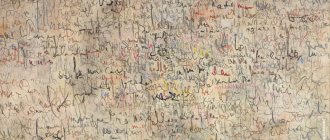The literary heritage of our time is truly inexhaustible. Today, anyone can find an incredible amount of materials on absolutely any topic, from rhetoric and biology to astronomy and political science, from mechanics and aeronautics to pedagogy and didactics, etc. And everyone who is interested in literature in general should know that a huge part of the world's literary heritage belongs to the authors of Ancient Rome and Ancient Greece. In this article we would like to tell you about Cicero, who became famous for his incomparable speeches and left behind many unique works. And you will find out why this person deserves special attention by reading the material presented.
Marcus Tullius Cicero
Marcus Tullius Cicero was a famous ancient Roman politician, orator and philosopher. Despite the fact that he was born into an ordinary family, he managed to make an amazing career - he became a member of the Senate and consul. The reason for this was largely his oratorical gift.
Cicero received his oratory and philosophical education initially in Rome, and then continued his studies in Rhodes, Asia Minor and Athens. As he advanced in his career, he occupied increasingly higher government positions. Cicero devoted his entire life, as well as his literary work, to politics.
Brief Analysis
Before reading this analysis, we recommend that you familiarize yourself with the poem by Cicero.
History of creation - the exact date of its writing is unknown, but presumably it happened between 1829 and 1830. It was published in the magazine “Desnitsa” in 1831.
The theme of the poem is European culture with its unusual fate and the role played by the individual at important historical moments.
The composition is three-part, where the first part is a speech delivered by a speaker from the times of Rome, the second is the opinion of the lyrical hero, and the third is a generalization made by the author.
Genre : ode.
The poetic meter is iambic tetrameter with a ring and cross rhyme.
Epithets - “Roman orator”, “civil storms”, “fatal moments”, sublime spectacles”, “bloody sunset”.
Metaphors - “you drank immortality from their cup!”, “in all its grandeur you saw the sunset of its bloody star!”, “the night of Rome.”
Comparisons – “like a companion at a feast”, “like a celestial being”.
Cicero vs Verres
Initially, in the speeches and writings of Cicero, the interests of the equestrian class prevailed, to which, in fact, he himself belonged from birth, and he opposed the Roman nobility. This can be judged by his speeches directed against Verres, who was the former governor of Sicily and plundered the country. The inhabitants of this province themselves asked Cicero to oppose the profit-hungry man. Cicero prepared for the trial in the most thorough manner, collecting a huge amount of factual material, looking for witnesses, and then acting as an exposer of the criminal acts of the former governor.
Already during the first court session, Cicero made two speeches that forced Verres to plead guilty, and the matter did not even come to the second session. But the accuser did not stop, and all seven speeches “Against Verres” were published, outlining in detail all the predatory behavior of the villain, as well as the arbitrariness of the governors who ruled the provinces, and mutual responsibility within the Roman nobility, i.e. nobility
Over time, Cicero began to side with the Senate party, directing all his efforts to reconcile the warring classes.
Cicero vs Catiline
However, the period when Cicero was consul deserves special attention - it was during this time that he managed to expose Catiline’s conspiracy, and also spoke out against him with numerous speeches.
For reference, we note that Catiline was a member of the Senate, and took his origins from a noble patrician family. He conceived his plot during the election struggle for consular power, and this struggle was between him and Cicero. Catiline was able to attract a considerable number of people from various social strata to his supporters, and his main slogan was the demand to cancel old debts.
Catiline's entire political campaign was uncertain, but had as its main goal the seizure of power. Cicero, being consul, organized an emergency meeting of the Senate, which, of course, included Catiline. At this meeting he made his first speech “Against Catiline.”
This speech was extremely effective and successful and complied with all oratorical rules. Cicero described the actions of the attackers and the personality of Catiline in rather gloomy colors. He called him “an enemy of the fatherland” and added many unpleasant epithets to this. The main demand for Catiline was to leave Rome, which he did not hesitate to do at the end of the meeting.
Over the next few days, Cicero made three more speeches against the enemy before the Senate and the people, and then published all four speeches. However, the success of the speeches, which helped expose the conspiracy, did not allow the consul to remain in Rome. So, after the expiration of consular powers, Cicero had no choice but to become an exile, because the discontent of Catiline’s supporters was growing, which threatened Cicero with execution without trial.
Speaker
Translation and comments by M. L. Gasparov.
Translator's note
Of all the works of Cicero, his works on oratory are perhaps the most in need of a new scientific edition at the present time. The reason for this is the state of the manuscript tradition of this group of works by Cicero. Treatises on oratory have reached us in two handwritten editions - “incomplete” and “complete”. Where the text of these editions coincides, we can assume with reasonable confidence that it corresponds to the Cicero original. But where it does not coincide, publishers do not have any objective reasons to prefer a version of one version to another, and they have to operate with arguments “from the meaning”, which are always disputable. Fortunately, discrepancies of this kind usually concern unimportant details and sometimes do not even affect the translation.
The origin of the two editions of Cicero’s text is as follows. With the fall of ancient culture, Cicero's three treatises are losing popularity. If “Rhetoric to Herennius” and Cicero’s youthful work “On Finding” are intensively rewritten as rhetoric textbooks, then “On the Orator” and “Orator” survive in almost a single manuscript with many lost leaves, and “Brutus” is completely forgotten (only by chance a recently discovered fragment of the Cremona manuscript of “Brutus” from the 9th century has survived). When the period of the “dark ages” of the early Middle Ages passes, and the surviving monuments of ancient literature again begin to be copied in European monasteries, this defective manuscript of the treatises “On the Orator” and “The Orator” becomes the source of a whole family of lists; they all have a common feature - gaps (sometimes very large, half the book or more) in those places where leaves were lost in the archetype. This is an “incomplete extract”; its archetype has long been lost, but its text is partly amenable to reconstruction according to the oldest and best copies - “Avranche”, “Harleyan”, “Erlangen” (IX-X centuries), etc.
In the XIV-early XV centuries. The Renaissance sharply revived interest in the rhetorical treatises of Cicero. The surviving manuscripts of “On the Orator” and “The Orator” are being rewritten more and more often, and frustration at their incompleteness is breaking out more and more. It comes to the point that around 1420, the Milanese professor Gasparino Barzizza, the best specialist of Ciceronian rhetoric at the time, took on risky work: he was going to fill the gaps of the “incomplete excerpt” with his own additions for coherence. But before he had time to finish his work, a miracle happened: in the remote Italian town of Lodi, an abandoned manuscript was found with the full text of all the rhetorical works of Cicero - the “old rhetoric” (“Rhetoric to Herennius”), the “new rhetoric” (“On the Finding” ), “About the Orator”, “Brutus” (previously completely unknown) and “The Orator”. Barzizza and his students pounce on the new find, with difficulty decipher its ancient (probably 8th century) script and finally make a readable copy. Lists are taken from this copy, new lists are taken from them, and in their totality they constitute a “complete excerpt” of Cicero’s text; It is headed by the manuscripts “Florentine Magliabecca”, the Vatican “Ottobonian” (the only one that includes all three treatises in a row) and “Palatine” - all three date back to 1422-1425. Meanwhile, the irreparable happens: the archetype of this version, the Lodi manuscript, turns out to be abandoned, no one wants to struggle with its difficult text, it is sent back to Lodi as unnecessary, and there it goes missing: since 1428, nothing has been said about its fate known. European philologists continue to mourn this loss to this day.
Manuscripts multiplied, and along with lists of “incomplete” and “complete” editions, mixed lists appeared, making amendments to one edition according to another. With the invention of printing, manuscripts were replaced by printed publications: around 1465, the first printed edition of the treatise “On the Orator” was published in Subiaco; in 1469, the first printed edition of all three treatises together was published in Rome. For several centuries, the basis for these publications was the “complete edition” manuscripts as the most coherent and convenient. It was only in the 1830s that the Swiss philologist J. Orelli, working on the republication of all the works of Cicero, drew attention to the fact that old manuscripts of the “incomplete edition” often provide more acceptable readings than manuscripts of the “complete edition.” From then on, a gradual rehabilitation of the manuscripts of the “incomplete edition” began, led by Avranches; a generally accepted reading is gradually established where the text of the two editions gives discrepancies; but a significant part of the discrepancies still remains controversial.
In all scientific editions of Cicero's works, to facilitate references, a double system of end-to-end rubrication of the text is adopted: by chapters and by paragraphs. In our publication, chapter numbers are marked with bold numbers inside the text, paragraph numbers – with light numbers in the margins. (In the electronic publication, paragraph numbers are indicated by numbers in parentheses inside the text. – Note by O. Lyubimova.)
In references to the treatise "On the Orator" the Roman numeral designating the book and the paragraph number are given; in references to “Brutus” - the letter B and the paragraph number; in references to “Speaker” - the letter O and the paragraph number. The subheadings printed in bold at the beginning of the paragraphs do not belong to Cicero and are included in our publication only to facilitate the reader’s orientation in Cicero’s complex text.
In the following comments, the numbers at the beginning of each note indicate the paragraph number to which the note refers.
Dedication
(1) What is more difficult and difficult: to refuse your frequent requests all for the same thing or to fulfill what you ask? – This is what I, my Brutus, thought about for a long time and a lot. It seemed truly cruel to me to deny you, whom I love so much and whose reciprocal love I feel, your just request and worthy desire; but to encroach on such an object, which the forces cannot cope with and which even the thought cannot embrace, also, I believed, is not appropriate for someone who fears the judgment of reasonable and knowledgeable people.
(2) For what could be more difficult than to decide what is the best image and, as it were, the best form of speech, [1] when famous speakers are so different from each other? Yielding to your frequent requests, I undertake this not so much in the hope of success as from the desire to make an attempt: because I would rather, following your will, reveal a lack of understanding to you than otherwise a lack of kindness.
Difficulties of the topic
(3) So, you ask me more and more often, what kind of eloquence do I like best and how do I imagine that eloquence, to which nothing can be added, which I consider the highest and most perfect? But here I am afraid that if I fulfill what you want and outline the kind of speaker you are looking for, I will weaken the efforts of many who, in the impotence of despair, refuse to encroach on what they cannot hope to achieve.
(4) But in fairness, everything should be attempted by all those who have the desire to achieve a goal that is great and worthy of great effort. And whoever does not have enough natural data or [2] the strength of outstanding talent, or who is not sufficiently enlightened by the study of great sciences, let him follow the path along which he can, for if he strives to become the first, then it is not shameful to be second and third.
After all, among poets there is a place not only for Homer, if we talk about the Greeks, and not only for Archilochus, or Sophocles, or Pindar, but also for those second after them, and even for those who are lower than the latter.
(5) Likewise in philosophy, the greatness of Plato[3] did not prevent Aristotle from writing, and Aristotle himself, with his truly wondrous knowledge and fertility, did not extinguish the zeal of others.
And not only were these brilliant men not turned away from their highest quests, but even the masters did not abandon their arts because they were unable to imitate the beauty of Ialis, whom we saw at Rhodes, or the Venus of Kos; neither the statue of Olympian Jupiter nor the statue of Doryphorus scared off the other sculptors, and they still knew perfectly well what to do and where to go; and there were so many of them, and each in his own way acquired such glory that, while admiring the highest, we cannot help but appreciate the secondary.
(6) Also among the orators - at least the Greek ones - there is one who marvelously rises above all; nevertheless, even next to Demosthenes there were many great and glorious speakers; They existed before him, and they did not disappear after him. Therefore, those who have devoted themselves to the study of eloquence need not lose hope or weaken their zeal: even in the attainability of perfection they should not despair, and in high subjects that which only approaches perfection is beautiful.
The ideal character of the drawn image of the speaker
(7) However, in creating the image of a perfect speaker, I will describe him as, perhaps, no one has ever been. After all, I’m not trying to find out who it was, but I’m investigating what that unsurpassed perfection should be like, which I rarely or even never encountered in a speech consistent from beginning to end, but every now and then shone through here and there, in others more often, in others, perhaps less often, but everywhere it’s the same.
(8) However, I affirm that in no other kind is there anything so beautiful that it would not be inferior to that highest beauty, the likeness of which is every other, just as a cast [4] is the likeness of a face. It cannot be grasped by sight, hearing or any other sense, and we comprehend it only by reflection and reason. Thus, we can imagine sculptures more beautiful than the Fidievs, although we have not seen anything more perfect in this kind, and the paintings are more beautiful than those that I named.
(9) So the artist himself[5], depicting Jupiter or Minerva, did not see anyone whose appearance he could reproduce, but in his mind a certain highest image of beauty was found, and, contemplating it incessantly, he directed the art of his hands along in his likeness.
And so, just as in sculpture and painting there is something excellent and perfect, the imaginable image of which is imitated by what appears to our eyes, so we perceive the image of perfect eloquence with the soul, and we catch its reflection with the ear.
(10) Plato, that most worthy founder and teacher in the art of speech, as well as in the art of thought, calls such images of objects ideas and says that they do not arise, but exist eternally in thought and reason, while everything else is born , dies, flows, disappears and does not remain in the same state for any long time. Therefore, no matter what we reason about rationally and consistently, we must raise our subject to its ultimate image and appearance.
The speaker must have a philosophical education
(11) But I see that this introduction of mine does not come from discussions about oratory, but is drawn from the very depths of philosophy, and, moreover, an ancient and somewhat obscure one. This will perhaps cause censure and, in any case, surprise[7]. Readers will either be surprised what all this has to do with our subject (but when they understand the subject itself, they will be convinced that it was not for nothing that I began my speech from afar), or they will blame that we are looking for untrodden paths and abandoning the well-worn ones.
(12) I myself understand how often it seems that I am saying something new, when I am only repeating something very old, but unfamiliar to many; and yet I declare that I was made an orator - if I really am an orator, at least to a small degree - not by the schools of rhetoric, but by the vastness of the Academy[8]. This is the true field for diverse and varied speeches: it is not without reason that Plato laid the first mark on it. Both he and other philosophers in their reasoning scold the speaker and at the same time bring him great benefit. After all, from them comes, one might say, all the abundance of raw material for eloquence; but this material is not sufficiently processed for the processes of the forum, since philosophers, as they usually say, leave this to the cruder muses[9].
(13) Such contempt and disdain of philosophers for judicial eloquence deprived him of many important means; but, shining with the decorations of words and phrases, it was successful among the people and was not afraid of the harsh judgment of a few. This is how it turned out that learned people lack the eloquence accessible to the people, and eloquent people lack high science.
(14) So let us declare from the very beginning what will become clearer later: without philosophy the kind of orator we are looking for cannot appear; True, not everything is contained in it, but the benefit from it is no less than the benefit to the actor from the palaestra (after all, even small things can often be perfectly compared with great things). Indeed, no one can speak in detail and at length about the most important and varied subjects without knowing philosophy.
(15) So, in Plato’s Phaedrus, Socrates says that even Pericles was superior to other speakers because his teacher was the physicist Anaxagoras: from him, according to Socrates, he learned many beautiful and glorious things, including - abundance and richness of speech and the ability to use certain means of syllable to excite any emotional movements, and this is the main thing in eloquence. The same must be said about Demosthenes, from whose letters one can understand what a zealous listener he was to Plato[10].
(16) Further, without philosophical education we cannot distinguish the genus and type of any object, nor reveal it in definition, nor divide it into parts, nor distinguish true from false in it, nor draw consequences, nor notice contradictions, nor to clarify the ambiguous. But what can we say about the nature of things, the knowledge of which provides such abundant material for the speaker? And can anything be said or understood concerning life, duties, virtues, morals, without studying these subjects in themselves?[11]
(17) All these such important thoughts must acquire countless decorations: this alone was taught in our time by those who were considered teachers of eloquence. That is why no one has true and perfect eloquence, because the science of things exists in itself, the science of speech in itself, and people learn to think from some mentors, and to speak from others.
(18) So Mark Antony, whom the generation of our fathers recognized as almost the first in eloquence, a man by nature insightful and sensible, in the only book he left behind[12] declares that he has seen many eloquent people, but not a single eloquent one. From this it is clear that in his soul there was a certain image of eloquence, which he comprehended in his imagination, but did not actually see. So, even this man of the most subtle mind, demanding a lot from himself and from others, did not see anyone who could rightfully be called eloquent;
(19) and since he did not consider either himself or Crassus eloquent, then, of course, he contained in his soul such a model of eloquence that decisively embraced everything, and therefore could not approach those who had something (and sometimes a lot) was missing.
Cicero vs Mark Antony
Cicero wrote as many as fourteen speeches against Mark Antony, who killed Caesar. These speeches were called “Philippics”, because. were very similar to the speeches of Demosthenes, who spoke out against the Macedonian tyrant, King Philip.
In his speeches “Against Mark Antony,” Cicero called on the Senate to defend the freedom of the republic against the heir of Caesar. But later, Mark Antony and his supporters created a second triumvirate, and the Senate simply became unable to resist, which is why Cicero was included in the list of outlaws and later killed. But the fame of Cicero not only did not sink into oblivion, but was able to overcome centuries.
Genre
This work clearly shows genre diversity. It is expressed in the fact that the first two parts have the features of ode and elegy.
If in the first part Tyutchev recreates the atmosphere of Roman poetry, giving it occasional notes, then the second, which talks about the chosenness of man, has the features of a classical elegy.
The poet skillfully conveys both the position of the participant in the events and the position of the viewer, weaving them together.
All this is embodied with the help of Tyutchev’s favorite iambic tetrameter, and he distinguishes parts of the poem not only compositionally, but also with the help of rhyme: in the first two he uses a ring rhyme, and in the author’s words - a cross rhyme.
Features of Cicero's speeches
Cicero's speeches were always filled with the most diverse content and were distinguished by first-class skill. Both his political and judicial speeches appealed to high moral principles and condemned cruelty, ignorance and greed.
Cicero formulated in a special way the tasks that the speaker must perform. He said that an eloquent speaker can be considered a speaker whose speeches both in council and in court will be convincing, delightful and captivating. The first is a consequence of necessity, the second is required for pleasure, and the third is the path to victory, because has a large amount of funds necessary for success in business. And depending on the number of tasks that the speaker sets for himself, one can name the same number of types of eloquence - it can be precise - for persuasion, moderate - for pleasure, powerful - for enthusiasm. The speaker considered the process of delivering a speech in front of the public to be the most important moment.
As for the language of Cicero’s speeches and writings, they are something between the basic rhetorical directions - Atticism, which is a simple dry style, and Asianism, which is a lush and colorful style.
As time went on, Cicero gravitated more and more towards a moderate and strict type of eloquence. They paid great attention to speech rhythm, euphony of endings and the alternation of long and short syllables. By skillfully matching all this, Cicero was able to become the most outstanding master of political speeches in Rome.
Cicero masterfully mastered the artistic means of the speaker, which can enhance the pathos in speech. Among these are exclamations, rhetorical questions, appeals to the gods, fictitious speeches that seem to come from the characters of allegories, metaphors, etc. And Cicero’s works are always stylistically processed at the highest level.
It is for these reasons that Marcus Tullius Cicero is credited with a major contribution to the development of a normalized Latin language and Roman classical prose.
History of creation
Literary historians have come to the conclusion that the poem “Cicero” was Tyutchev’s reaction to an important historical event - the July Revolution in France. If so, then it was written in 1830, when it happened. However, there is a version that the poet wrote it earlier - in 1829.
In any case, the date of its first publication is reliably known - this happened in 1831, when it was published in the magazine “Desnitsa”. As for Sovremennik, Cicero was published only five years later - in 1836.
Literary legacy and significance of Cicero
Cicero, as we just mentioned, is considered the founder of Roman classical prose. The language of his speeches, letters and treatises is the norm of classical Latin. The style of his prose works was appreciated by critics of Antiquity, and the works themselves became exemplary.
The letters written by Cicero formed the basis of European epistolary culture, and the speeches, mainly the Catilinaria (the "Against Catiline" speeches), are among the most prominent examples of the genre.
Humanistic prose also, in the process of its formation, took the language of Cicero as a basis. Even in the 18th century, prominent French revolutionary politicians took the rules and techniques of Cicero as the basis for their eloquence.
Cicero's treatises on philosophy can be called a unique presentation of the entire philosophy of his era, and today data is drawn from them on many aspects of life in Rome in the 1st century BC.
After himself, Cicero was able to leave a voluminous literary legacy, most of which can be found today. This includes his literary works: more than eight hundred letters, several treatises and 58 speeches.
We also recommend reading:
- Storytelling
- Aristotle complex
- Preparing and delivering a speech
- Exercises for memory development in preschoolers
- Lessons of Wisdom from Cicero
- Pros and Cons of Pros and Cons Lists
- Techniques for a successful presentation: a selection of useful materials
- Development of speech culture
- Mnemonics: how to remember people and everything connected with them?
- Aristotle's rhetorical concept
- How to win the hearts of your audience: a cheat sheet for successful public speaking
Keywords:1Storytelling











